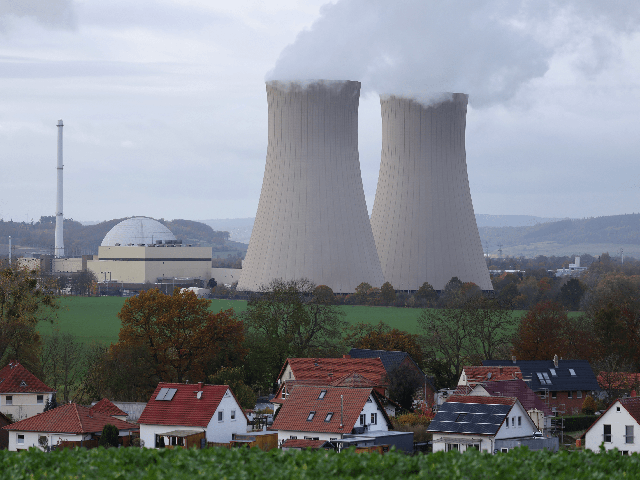The European Parliament on Wednesday voted not to block a proposed rule that would designate gas and nuclear power plants as “climate-friendly.” The rule will take effect unless 20 of the European Union’s (EU) 27 member states band together to stop it.
The EU keeps a “taxonomy,” or rulebook, that designates which types of energy investment can be labeled “green.” The terminology is considered valuable for marketing purposes and to attract investors looking for climate-friendly projects. “Green” projects are also eligible for favorable government loans, and even outright government subsidies.
The taxonomy is supposed to prevent “greenwashing,” loosely defined as falsely claiming a project is climate-friendly, although radical Greens derisively use the term for every enterprise they deem insufficiently pure.
The law approved 328-278 by the European Parliament in Strasbourg, France, on Wednesday will add numerous natural gas and nuclear energy projects to the taxonomy, beginning next year.
Environmentalists denounced the move, and demonstrated outside the European Parliament to show their displeasure, because they are unalterably hostile to nuclear power, no matter how “clean” it might be.
EU parliament backs labelling gas and nuclear investments as 'green' https://t.co/Jc5jybeDJR pic.twitter.com/bmXi6njBbK
— Reuters (@Reuters) July 6, 2022
“It’s dirty politics and it’s an outrageous outcome to label gas and nuclear as green and keep more money flowing to Putin’s war chest, but now we will fight this in the courts,” howled Greenpeace EU’s Ariadna Rodrigo.
As the Associated Press pointed out, nuclear power is unquestionably “clean” and “climate-friendly” by any scientific definitions of the terms, as it produces no carbon emissions. Green purists insist nuclear power is too risky to play a major role in achieving “carbon neutrality.”
Liquid natural gas (LNG) is also climate-friendly by any rational definition, producing roughly 30 percent less carbon dioxide than fuel oil and 45 percent less than coal, plus dramatically reduced or zero emissions of other compounds thought to be harmful to the environment. Greens despise LNG because it is a “fossil fuel.”
Various factions within the EU argue that reaching the bloc’s ambitious carbon neutrality goals is only possible with large-scale deployment of nuclear or LNG power. Some European politicians embrace one technology but reject the other – for example, German Chancellor Olaf Scholz dislikes nuclear energy but sees LNG as “an important bridging technology for us on the way to CO2 neutrality.”
Climate activists denounced the European Parliament vote as “greenwashing by law” on Wednesday, complaining that classifying gas and nuclear projects as climate-friendly will divert subsidies and investment away from technologies they prefer.
Some critics also pointed to Europe’s reliance on Russia for a hefty portion of its natural gas supply. The EU has banned Russian coal and is working to restrict or ban Russian oil, but eliminating Russian natural gas would be almost impossible.
Germany’s Deutsche Welle noted something of a class divide within the EU over the new rules, as the bloc’s less wealthy members want the reliable and affordable energy provided by gas and nuclear plants.
Czech Prime Minister Petr Fiala, for example, said the European Parliament vote was “excellent news not only for the Czech Republic, but also for the whole of Europe” because it “paves the way towards energy self-sufficiency which is absolutely crucial for our future.”

COMMENTS
Please let us know if you're having issues with commenting.